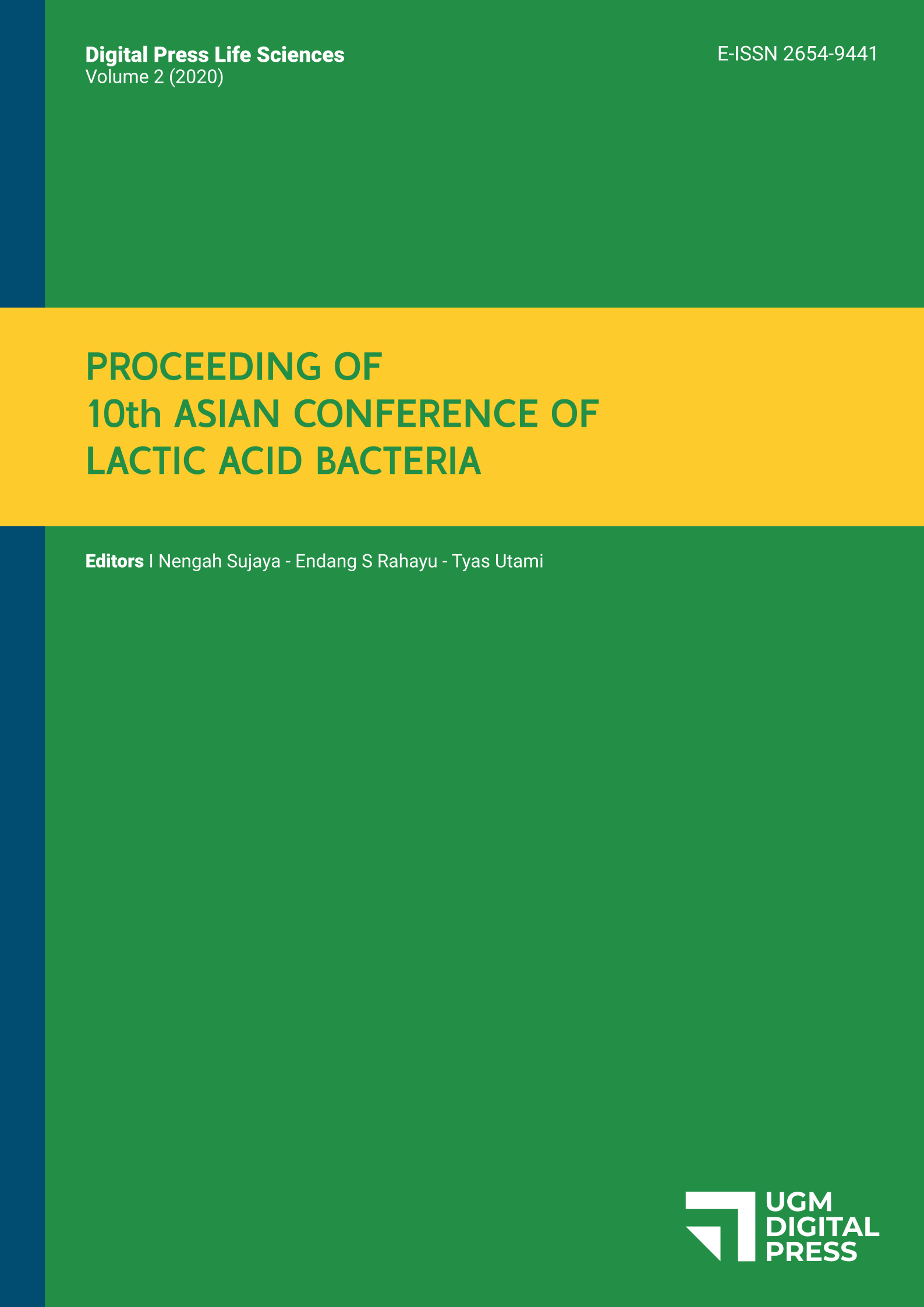The Effect of Different Methods of Giving Probiotic Lactobacillus salivarius I-11 on Broilers Performance in Starter Period
Sri Sumarsih
, Bambang Sulistiyanto
, and Cahya Setya Utama
Faculty of Animal Agricultural, Diponegoro University, Semarang
ssumarsih71@gmail.com
Abstract
The aim of the research was to study the effect of different methods of giving probiotics Lactobacillus salivarius I-11 on broilers' performance in the starter period. A total of 200 days old chick were reared until 14 days of age. The research was used a completely randomized design with four treatments and five replications. The treatments were T0 = Control with no probiotics, T1 = Probiotics with Force-feeding, T2 = Probiotics in Feed, T3 = Probiotics in drinking Water. The parameters were broilers performance (feed conversion ratio /FCR, bodyweight gain/ BWG and feed consumption / FC,) in the starter period with different methods of giving probiotics. The data were analyzed by ANOVA and DMRT tests. The Result showed that The FCR of (T1, T2 dan T3) were lower (p < 0.05) but the BWG of broilers were higher (p < 0.05) compared to control treatment. There are no significant results on the FC of T0 with T1, T2 and T3. The conclusion was the Broilers in starter period without given probiotics showed the worse performance compared to broilers with probiotics Lactobacillus salivarius I-11.
Keywords
force-feeding, probiotics, lactobacillus salivarius I-11., broilers, performance
References
ssumarsih71@gmail.com

